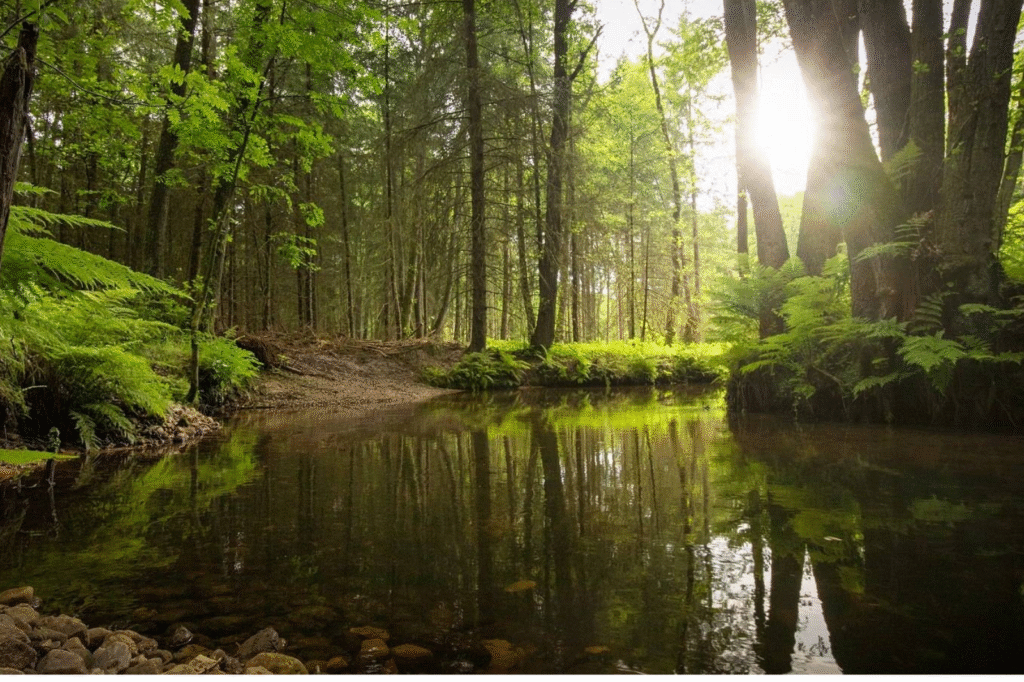
“Forest bathing,” or Shinrin-yoku, is a Japanese wellness practice that emerged in the 1980s as a public health response to urban stress and growing detachment from nature. It’s not hiking or exercising—it’s the art of simply being in a forest, fully present and engaged with your senses.
The practice involves walking slowly, observing the details of the landscape, breathing deeply, touching the bark of trees, or even sitting still for long moments. Think of it as outdoor mindfulness—a meditative way to reconnect with your surroundings.
Science strongly supports its benefits. Research from Chiba University in Japan showed that spending time in forests significantly lowers cortisol levels, reduces blood pressure, and strengthens immune function. An added bonus? Trees emit compounds called phytoncides, which—when inhaled—enhance the activity of our NK (natural killer) cells, key players in immune defense.
The beauty of forest bathing is its simplicity. It requires no training, no expensive gear, and no prior experience. All it asks is time and presence. And in places like Avándaro, with its lush greenery, shaded trails, and quiet woods, the experience becomes not only accessible but profoundly therapeutic.
In a world that rewards productivity and digital connection, spending an hour surrounded by trees might just be the most radical act of self-care.
Por favor, introduzca su nombre de usuario o dirección de correo electrónico. Usted recibirá un enlace para crear una nueva contraseña a través de correo electrónico.